MILL CREEK, Wash., June 23, 2022 – Mill Creek City Council and staff, joined by Senator John Lovick and Pickleball ambassadors, christened the newly striped multi-use courts at Highland Park yesterday, June 22, by playing pickup games commemorating pickleball as the recently established official state sport of Washington.
SB-5615, designating pickleball as the official state sport, was signed by Governor Jay Inslee March 28 and went into effect June 9, 2022. The primary sponsor of that bill was Mill Creek resident Senator John Lovick, with the support of pickleball advocates Chuck Wright and Kate Van Gent, all of whom attended the celebration sharing words of appreciation before taking to the courts to play.
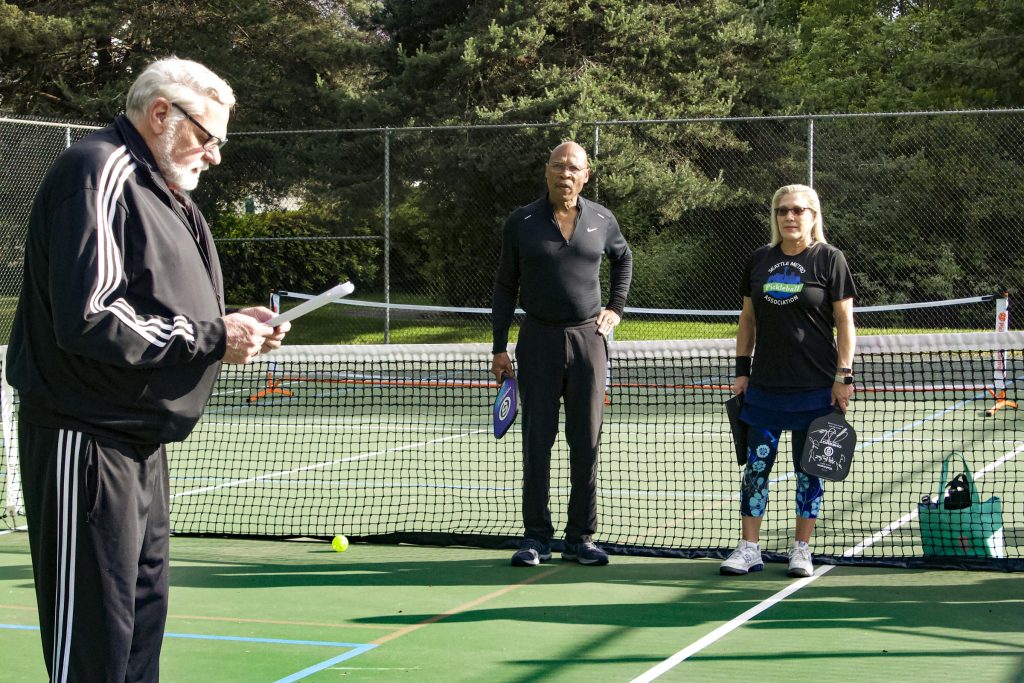
“In my sixteen years in legislation, in the house and the senate, I have never sponsored anything that has generated more positive energy and more enthusiasm,” Sen. Lovick told the Lynwood Times. “It’s one of those games you can just play, you don’t care whether you win or you lose, you’re still smiling and you still have fun.”
SB-5615 was the first bill of many Sen. Lovick passed since becoming senator on December 16, 2021.
“Without John this never would’ve happened,” Chuck Wright, pickleball enthusiast and supporter of the bill told the Lynnwood Times.
With the increasing popularity of pickleball, Mill Creek residents approached City Council countless times, prior to the bill’s passing, requesting the City provide more courts to play. The Council put their heads together and worked with staff to make that happen by working with local USA Pickleball ambassadors and other local cities, such as Seattle and Everett, to utilize best practices.
“I’m really excited because members of our community came to council and asked us to do something to bring them pickleball and we really worked together in championing this to get it going as quickly as possible,” Mayor Pro-Tem Stephanie Vignal told the Lynnwood Times.
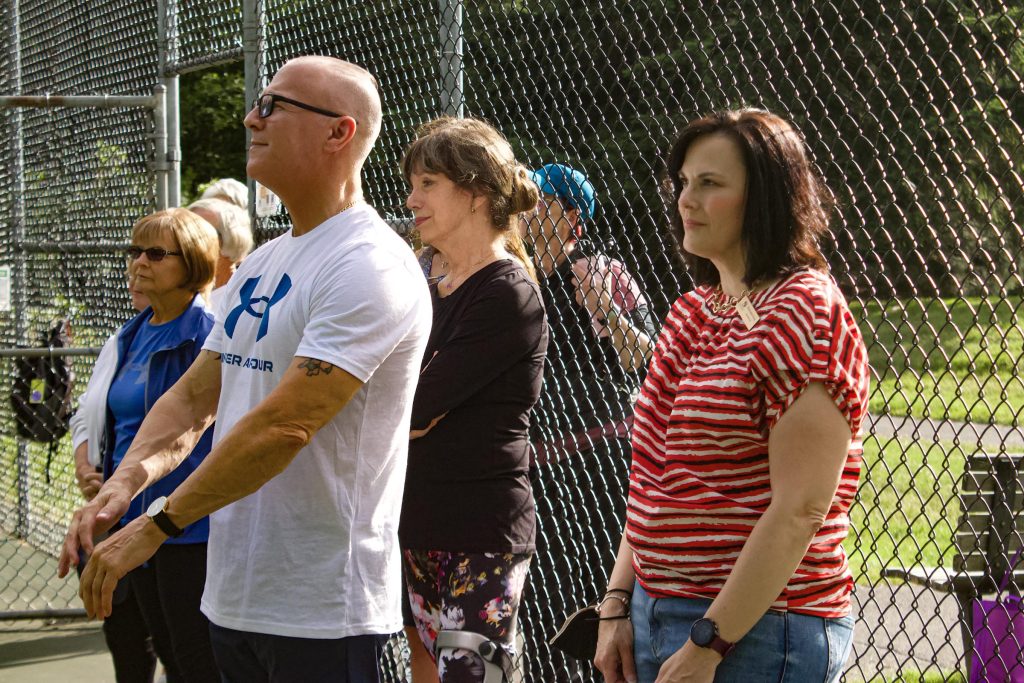
The renovation included pressure washing the courts with hot water, installing new tennis nets, and striping the courts based on USAPA (USA Pickleball) guidelines. Also, the City worked with the Parks & Recreation Board to launch a short survey that seeks community input about City Parks, including questions about pickleball. In addition to addressing community interest, these new courts are part of the city’s ongoing efforts to provide quality amenities at city parks for all ages. The courts are free to the public and available on a first-come, first-served basis.
“I’m excited to be able to provide Pickleball courts for the people of Mill Creek and beyond. The citizens of the city came to the council and asked for this, and we pulled it off in less than a year so I’m impressed with my fellow council members and what they put to work,” Councilwoman Connie Allison told the Lynnwood Times.
The Highland Park pickleball project began in January, and the newly striped multi-use courts were ready to use in late May 2022. “The wet winter and spring caused several delays, said Scott Harder, Communications & Marketing Coordinator and pickleball project manager. “We are excited to have the courts open and available to all. These multi-use courts should satisfy pickleball players while not interrupting the demand for courts by tennis players.”
Harder informed the Lynnwood Times the City is currently in the works to establish leagues and classes taught by pickleball legend Rick Bomar “Pickleball Rick”. For more information on these classes visit millcreekwa.gov/pickleball.
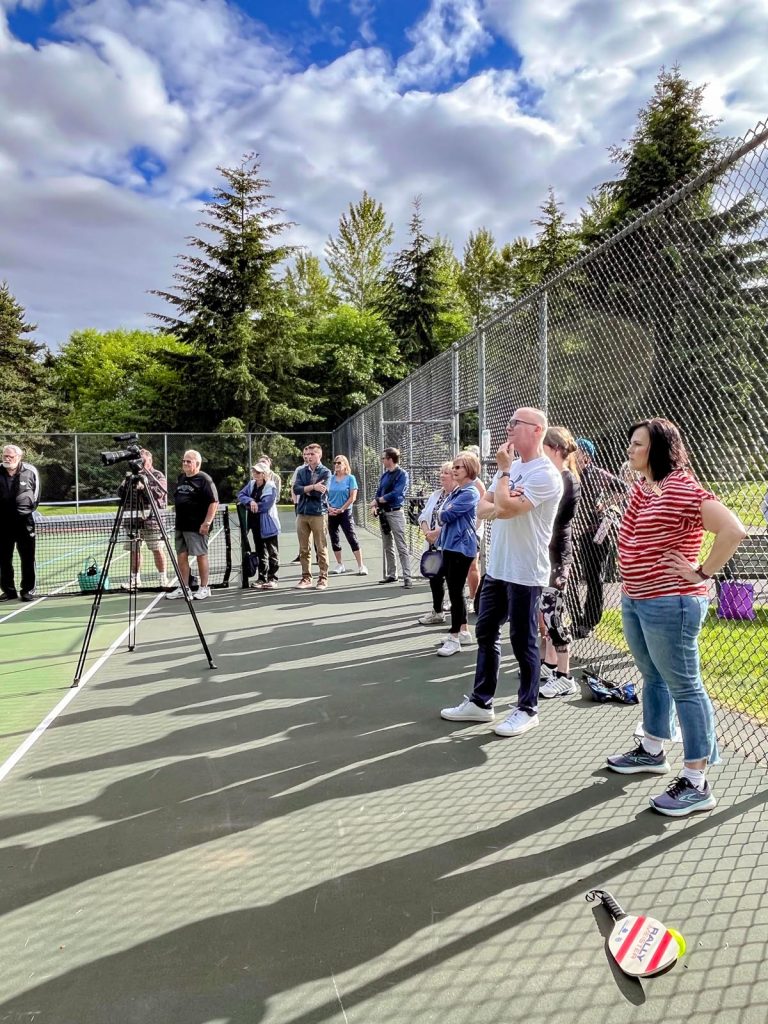
Initiating the series of commemorative pickleball matches held yesterday, Councilman Vincent Cavaleri squared off against Senator John Lovick and Kate Van Gent. It was Councilman Cavaleri’s first-ever pickleball game and he informed the Lynnwood Times that he “enjoyed the heck out of it” but needs to get used to the differences between pickleball and tennis.
“The citizens deserve the credit here. This is their park, this is the way government is supposed to work and I’m excited to see the public get out here,” Councilman Cavaleri said.
As Van Gent and Sen. Lovick played on the opposing side, a commemorative pickleball paddle signed by Gov. Jay Inslee, Sen. John Lovick, Stu Upson, CEO of USA pickleball, and Van Gent March 28, lay on the sidelines. Before the games commenced, Van Gent proudly displayed this paddle to the crowd reminding them of their achievement.
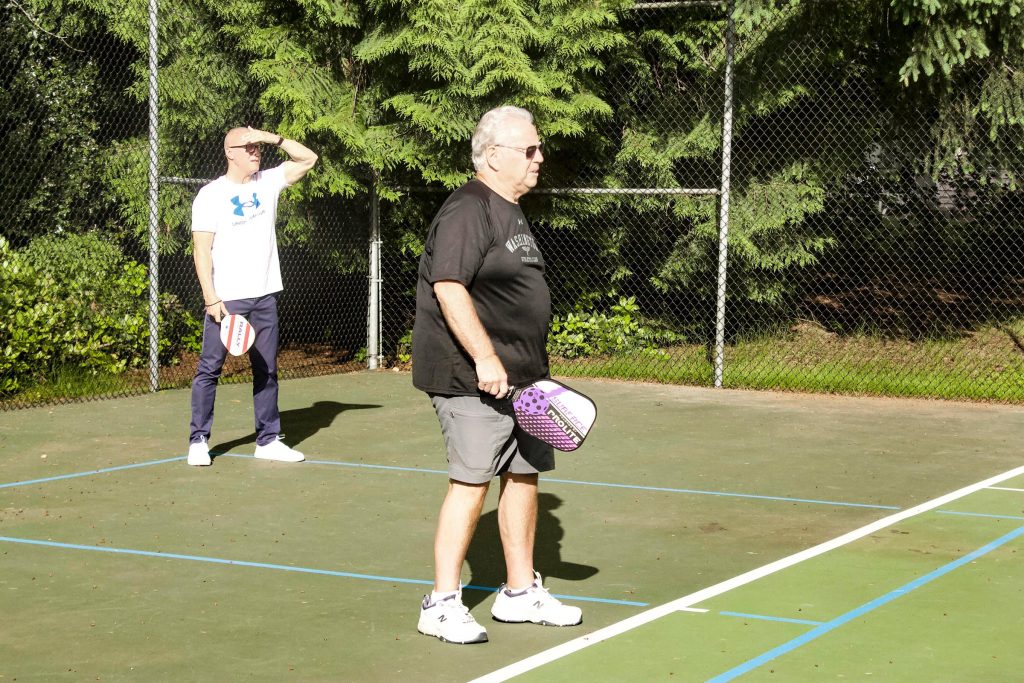
City Councilman Vincent Cavaleri (left) and his teammate playing a game of pickleball. Lynnwood Times | Kienan Briscoe.
“When I first started playing pickleball in early 2020 as a way to interact, socially distanced, and outdoors, the first thing I noticed was the lack of places to play. The second thing I noticed was the lack of knowledge of what pickleball was,” Van Gent said. “I’m proud that our efforts to pass the pickleball bill and expand pickleball courts has served to support physical health, fitness, and community interaction, and honors the legacy of the Washingtonian founders of this 57 year old sport.”
Brief history of pickleball
Like all great stories, pickleball was born on a sunny day with little to do. In 1965, two fathers named Joel Pritchard and Bill Bell returned home on Bainbridge Island, Washington, after a golf outing and decided to play a match of badminton. However, they lacked the proper equipment so improvised with a couple table tennis paddles and a wiffle ball – thus pickleball was born.
Today pickleball is the nation’s fastest-growing sport with thousands of pickleball tournaments held throughout the United States, including the U.S. Pickleball National Championships, U.S. Open Pickleball Championship, Major League Pickleball, as well as numerous international championships.
The basic rules are:
- Without bouncing the ball off the court, it must be served underhanded and diagonally to the opponent’s service court from behind the baseline.
- The serve has to clear the net and may not land in the kitchen.
- Points are scored when the opponent faults (failing to return the ball, hitting the ball out of bounds or into the net).
- Only the serving team can score.
- The server will continue to serve, each time by alternating service courts, until the serving side faults.
- Games are played to at least 11 points and must be won by a lead 2.
- After the ball is served, the ball must bounce at least once on each side before being able to volley the ball. This is known as the double bounce rule.
- Players cannot volley the ball while standing within the non-volley zone or on the non-volley line.
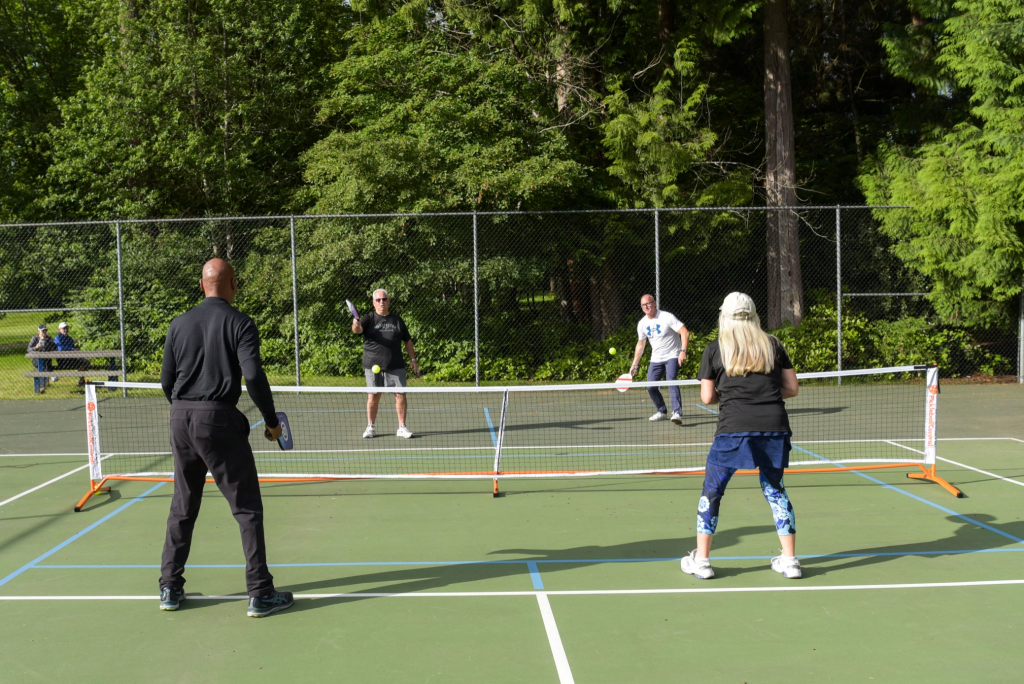
Author: Kienan Briscoe












One Response